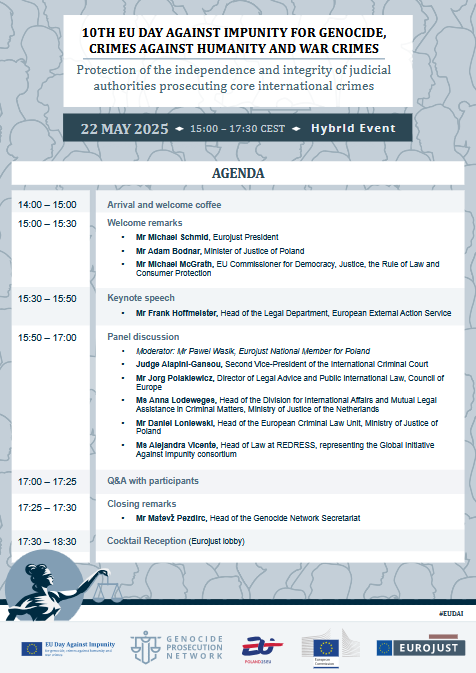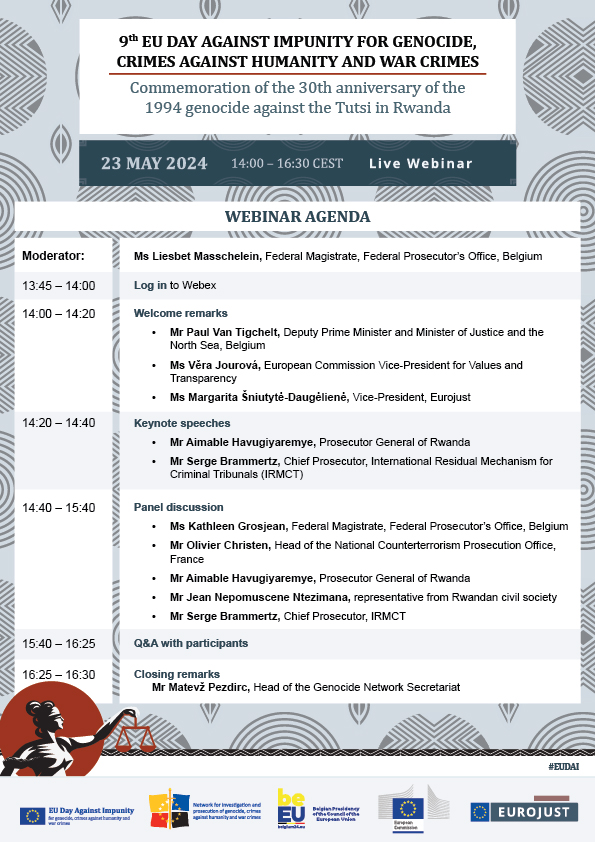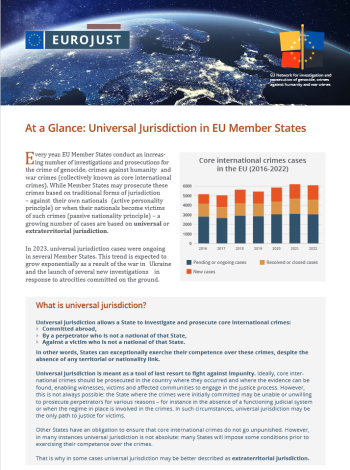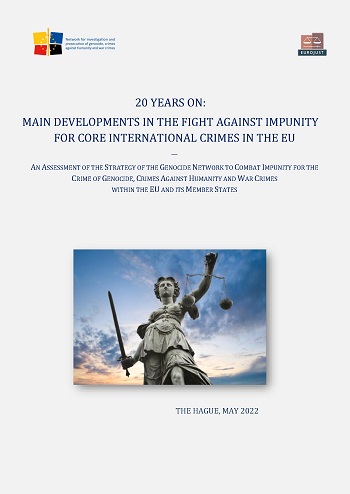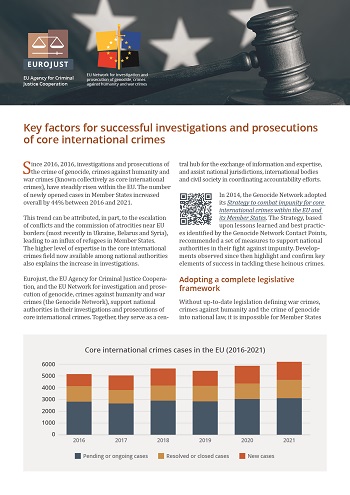
Since 2016, the 23rd of May marks the annual EU Day Against Impunity for Genocide, Crimes Against Humanity and War Crimes. Under the auspices of the Presidency of the Council of the EU in cooperation with the European Commission, the Genocide Prosecution Network and Eurojust, this initiative aims to raise awareness of the most heinous crimes of genocide, crimes against humanity and war crimes.
At the same time, the EU Day Against Impunity is intended to promote national investigations and prosecutions, to formally recognise the common efforts of the EU Member States and the European Union in enforcing international criminal law, to address the position and participation of victims in criminal proceedings for these crimes, and to reinvigorate Europe-wide commitment to the continuing fight against impunity for these crimes.
The first EU Day Against Impunity took place on 23 May 2016. Since then, the event has been attended by practitioners, representatives of international tribunals, Member States, the European Institutions and international organisations, non-governmental organisations, academics, lawyers, journalists, etc.
The initiative represents the implementation of one of the measures decided in the Strategy of the Genocide Prosecution Network to combat impunity for the crime of genocide, crimes against humanity and war crimes within the European Union and its Member States (Measure 7c).

